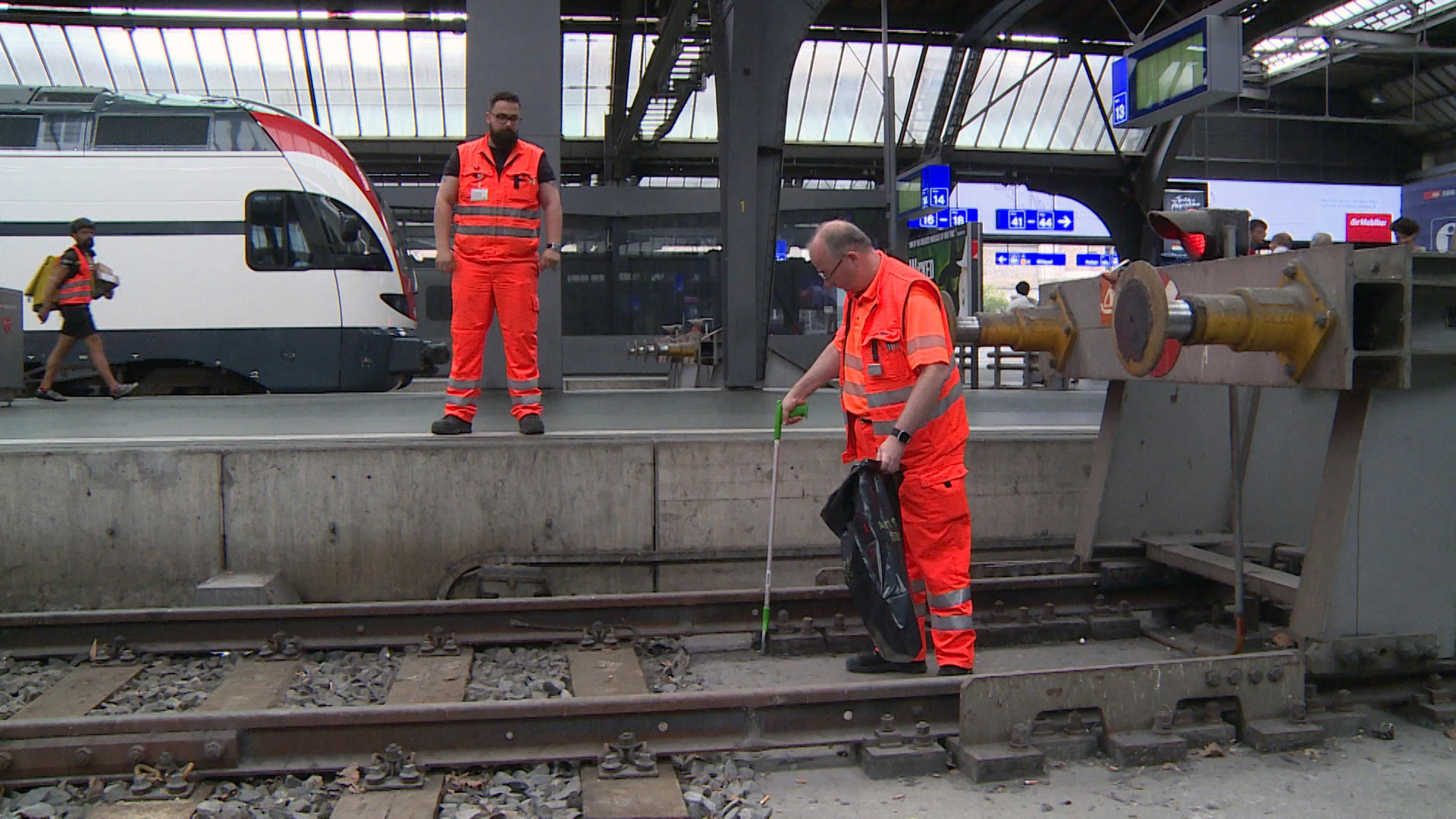
100 tons of cigarette butts litter Swiss train platforms every year

Each year, cleaning staff at the Swiss Federal Railways have to deal with around 100 tons of cigarette butts tossed on the railway platforms by smokers.
The information, obtained from internal documents and published by paper SonntagsBlick on Sunday, was confirmed by the railway company. The paper also revealed that 1,200 personnel are charged with keeping the platforms tidy daily throughout the country. Part of their job is to empty the 6,371 dedicated cigarette ash and butt disposal bins installed on every platform.
The federal railways is considering making all of its stations smoke-free from the end of this year. Smoking restrictions have been introduced at six railway stations in Switzerland as part of a 12-month test phase. Three non-smoking options are being tried out: totally smoke-free stations, smoking zones on platforms and smoking lounges. These options vary between the six test stations: Basel, Bellinzona, Chur, Neuchâtel, Nyon and Zürich Stadelhofen.
Smoking in trains was banned in December 2005, but compared with stations in other European countries, those in Switzerland have very liberal smoking regulations. Station buildings became smoke-free but passengers are still permitted to smoke on the platforms.

More
Who picks up your cigarette butts?

In compliance with the JTI standards
More: SWI swissinfo.ch certified by the Journalism Trust Initiative

























You can find an overview of ongoing debates with our journalists here . Please join us!
If you want to start a conversation about a topic raised in this article or want to report factual errors, email us at english@swissinfo.ch.